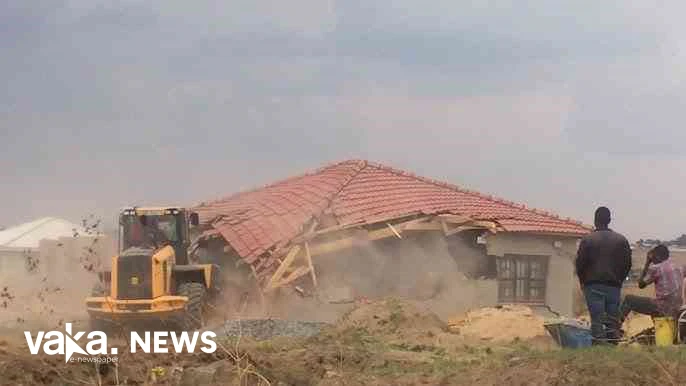Demolitions: Are the ‘sabhukus’ at fault?
- Category: Opinions

- By Dion Kajokoto
Zimbabwe has seen an alarming occurrence in recent years: the demolition of homes. In Zimbabwe, traditionally, village heads have been in charge of distributing land and homes to members of rural communities.
In Zimbabwe, the land issue has always been highly politicized. The language of the statutes that oversee it reflects this. In Zimbabwe, laws passed during the colonial era in 1934 regulate the community land. The Acts establish a relationship between colonial tenants and slave masters. It is regrettable that, in 2024, black Zimbabweans still only have the right to exploit their ancestral lands at the behest of the government and mining corporations. The Livison Chikutu & Ors v. Min of Lands & Ors case contended that the Communal Land Act is incompatible with human rights..
Zimbabwe has seen a concerning occurrence in recent years: the demolition of homes. Traditionally, village chiefs in Zimbabwe have been in charge of distributing land and houses to members of rural communities. Many needy people and families have benefited from security and shelter offered by this long-standing practice, which has helped them develop roots and foster a feeling of community. But the controversial move by the government to demolish houses that the village chiefs had previously allotted has prompted contentious discussions and raised issues with property rights, eviction, and the welfare of the impacted populations. We will investigate the causes of these demolitions, look at the effects on the impacted people, and consider the larger ramifications for Zimbabwean society in this piece.
Reasons for demolitions
Although village chiefs have traditionally distributed homes, the government has provided multiple justifications for the most recent demolitions. The necessity of addressing housing shortages in metropolitan areas and regularizing urban planning is one of the main justifications given. The claim made is that some homes were built without the required permits, which resulted in unplanned urbanization and the breaking of construction codes. Moreover, it has been proposed that these demolitions are a component of a larger initiative to combat corruption and ensure resource allocation is transparent. According to the government, some village chiefs misused their authority to give dwellings to people who didn't fit the requirements, which led to an unequal allocation of public funds.
Consequences: Affected individuals
The people and families who were residing in the destroyed houses suffered grave effects. Many people have unexpectedly found themselves without a place to live. In order to find temporary housing, displaced people have had to rely on the assistance of friends, family, or humanitarian organizations. The demise of home-based companies has caused some people to lose their sources of income, which has further disturbed livelihoods caused by the loss of homes.
Families who have lost their houses in Zimbabwe are suffering greatly emotionally as a result of the demolitions that have been occurring there. Their sense of belonging to the community has been broken, leaving them feeling disoriented and apprehensive about the future. Such turmoil might have detrimental long-term psychological impacts on the individuals involved. More significant ramifications for Zimbabwe's administration and social structure result from these demolitions. Since many of the individuals impacted had lawfully obtained their properties through the conventional allocation method, critics contend that the government's actions have infringed their right to property. Citizens now doubt the government's commitment to maintaining the rule of law and the integrity of property ownership, which has produced a climate of insecurity.



